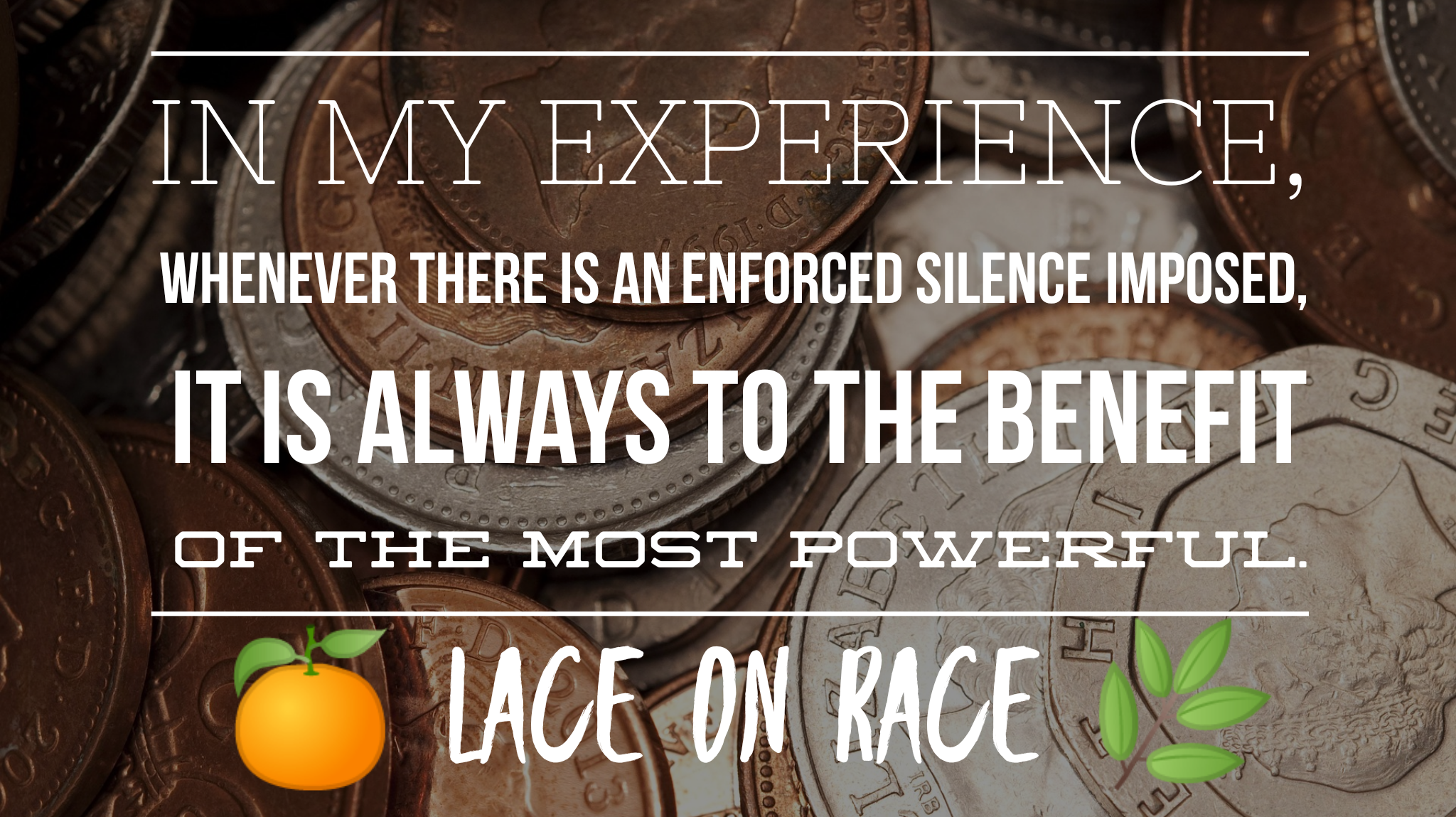I bet you’re wondering why I published the New York Times’ story about salary disclosure.
First and foremost, it’s a good article, that lays out the benefits, as well as the potential pitfalls, of salary transparency.
The second reason, is that it’s important when we talk about equity, particularly about racial equity, though the Times downplays that particular angle.
Here is what we know. The pay gap is truly a thing. What is less acknowledged, however, is that while the pay gap is real when comparing women to men, when black and brown women are broken out, the pay gap for white men and white women becomes a lot slimmer. That is something that is not talked about in white feminism, which touts the figure–right now, about 82% of what women make as compared to men, that Asian women and white women make far closer to the holy grail of pay equity, at 90% and 79% respectively, their Black and Brown sisters make far less, which pulls down the scale, from 62% for Black women to a low of 54% of Latinas, with Pacific Islanders and Native Americans in the middle of that.
This is a big deal, and often where sisterhood and feminism–where solidarity– falls down.
A lot of people talk about how difficult it is to compare apples to apples, but it’s important to have this conversation anyway. And in any case it’s not *that* hard. Nobody is talking about comparing two ‘nurses’, one a NP, the other a LPN/LVN, but within those two disparate cohorts discernments can be made. It’s important to know the range. Studies that account for tenure and degree exist.
But the code of silence, well documented in the Times’ article, is a big part of the disparity as well. There are many factors that I can see that can account for at least some of the differences; some are historical–if your parent was an RN, and you become one too, you can have a good idea of what to expect. Same if your parent was an engineer, or a CPA, or teacher.
Not so for first generation professionals, whether they are degreed or not. It has only been in the last 40 years or so that Black and brown cohorts entered the offices, labs, classrooms, hospitals and the like in significant numbers where we were not holding a broom. This is important. Rarely are there classes that are explicit in what to expect. There is also the issue of resources; if one has sufficient support, one can wait for the best opportunity, and there people who can tell you what is a more or less desirable offer. Absent that, it is difficult indeed to know what is ‘best’.
Even in fields where the pay scale seems more equitable–government–there is still a range. A white woman might get the ‘hazard’ pay for working in an impacted school that her colleague of color was not offered. Even with relatively rigid scales, like in local and state governments, there is room to wiggle. A job recruitment might say they will hire in at Step 1 for instance, but some people might be able to negotiate entering at higher steps. So two social workers in the same office with the same tenure are starting from different places, which, like compound interest, only grow more disparate over time.
Pay transparency is one way to at least mitigate some of these hindrances to true fairness. Here though, the dissonance between what feminists argue for themselves–that the ranges should be transparent, still balk when the spotlight is turned on to them and how they rank versus their colleagues of color.
This is why it matters. Throwing the curtain back on the way the salary sausage is made is one way to become a true accomplice in the quest for racial justice.
In my experience, whenever there is an enforced silence imposed, it is always to the benefit of the most powerful. This is true of politics, and it is true here. It is difficult, I know for those marginalized by gender to accept that, on another axis, they benefit at the expense of others, and they will resist the implication that they are colluding in a toxic and unfair system, even as they themselves are victimized by another dominant force.
But it is necessary to stay in this crucible. If white people in general, and white women in particular, truly want to work toward the world that they say they want to see, the issue of money and its implications must be broached.
And the clench around it must be seen as what it is. By now, you should see that I care far less about the numbers than I do about the clench, and about what that clench means. As always it turns on power. Money and the way it’s wielded matters. Your co worker may not know what you make, but you do. And your boss does, and it has an unconscious effect on how you are seen and valued in any organization. It’s yet another way to go top down. To choose to change that dynamic takes courage. But it is crucial.

Leave a Reply